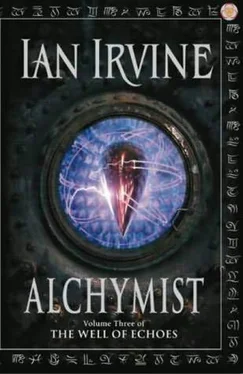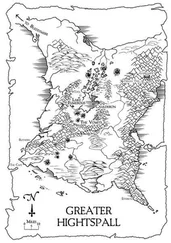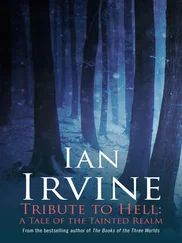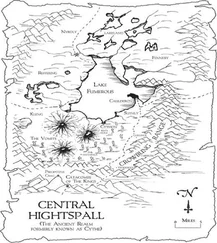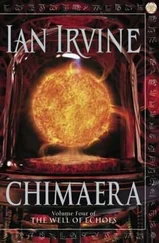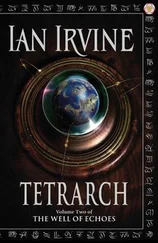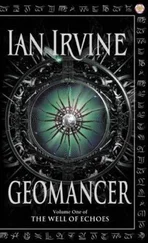Ian Irvine - Alchymist
Здесь есть возможность читать онлайн «Ian Irvine - Alchymist» весь текст электронной книги совершенно бесплатно (целиком полную версию без сокращений). В некоторых случаях можно слушать аудио, скачать через торрент в формате fb2 и присутствует краткое содержание. Жанр: Фэнтези, на английском языке. Описание произведения, (предисловие) а так же отзывы посетителей доступны на портале библиотеки ЛибКат.
- Название:Alchymist
- Автор:
- Жанр:
- Год:неизвестен
- ISBN:нет данных
- Рейтинг книги:3 / 5. Голосов: 1
-
Избранное:Добавить в избранное
- Отзывы:
-
Ваша оценка:
- 60
- 1
- 2
- 3
- 4
- 5
Alchymist: краткое содержание, описание и аннотация
Предлагаем к чтению аннотацию, описание, краткое содержание или предисловие (зависит от того, что написал сам автор книги «Alchymist»). Если вы не нашли необходимую информацию о книге — напишите в комментариях, мы постараемся отыскать её.
Alchymist — читать онлайн бесплатно полную книгу (весь текст) целиком
Ниже представлен текст книги, разбитый по страницам. Система сохранения места последней прочитанной страницы, позволяет с удобством читать онлайн бесплатно книгу «Alchymist», без необходимости каждый раз заново искать на чём Вы остановились. Поставьте закладку, и сможете в любой момент перейти на страницу, на которой закончили чтение.
Интервал:
Закладка:
Field: The diffuse (or weak) force surrounding and permeating (and presumably generated by) a node. It is the source of a mancer's power. Various strong forces are also known to exist, though no one knows how to tap them safely (see Power). Non-nodal stress-fields also exist, though on Santhenar these are weak and little used.
Flesh-forming: A branch of the Secret Art that only lyrinx can use. Developed to adapt themselves to the ever-mutable void they came from, it now involves the slow transformation of a living creature, tailoring it to suit some particular purpose. It is painful for both creature and lyrinx, and can only be employed on small creatures, though the lyrinx seek to change that.
Gate: A portal between one place (or one world) and another, connected by a trans-dimensional 'wormhole.’
Geomancy: The most difficult and powerful of all the Secret Arts. An adept is able to draw upon the forces that move and shape the world. A most dangerous Art to the user.
Hedron: A natural or shaped crystal, formed deep in the earth from fluids circulating through a natural node. Trained artisans can tune a hedron to draw power from the field surrounding a node, via the ethyr. Rutilated quartz, that is, quartz, crystal containing dark needles of rutile, is commonly used. The artisan must first 'wake' the crystal using his or her pliance. Too far from a node, a hedron is unable to draw power and becomes useless. If a hedron is not used for long periods it may have to be rewoken by an artisan, though this can be hazardous.
Mathemancy: An Art developed by Gilhaelith, though since that time it has been discovered independently by other mancers, notably Bilfis.
Nennifer: The great bastion of the Council of Scrutators, on the escarpment over Kalithras, the Desolation Sink. Nennifer is home to countless mancers, artisans and artificers, all furiously working to design new kinds of Art-powered devices to aid the war against the lyrinx.
Nodes: Rare places in the world where the Secret Art works better. Once identified, a hedron (or a mancer) can sometimes draw power from the node's field through the ethyr, though the amount diminishes with distance, not always regularly. A clanker operator must be alert for the loss and ready to draw on another node, if available. The field can be drained, in which case the node may not be usable for years, or even centuries. Maneers have long sought the secret of drawing on the far greater power of a node itself (cf. Power, Nunar's General Theory of Power) but so far it has eluded them (or maybe those that succeeded did not live to tell about it).
There are also anti-nodes where the Art does not work at all, or is dangerously disrupted. Nodes and anti-nodes are frequently (though not always) associated with natural features or forces such as mountains, faults and hot spots.
Nyriandiol: Gilhaelith's home, fortress and laboratory on top of Booreah Ngurle; the entire building is a geomantic artefact designed to protect him, ensure his control and enhance his work.
Oellyll: A lyrinx city in Meldorin.
Patterner: A semi-organic device developed by the lyrinx to pattern torgnadrs and other artefacts used in their Art. The patterner essentially copies a particular human's talent into the growing torgnadr, greatly enhancing the talent and allowing it to be controlled by a lyrinx skilled in the Art.
Pliance: Device that enables an artisan to see the field and tune a controller to it.
Port-all: Tiaan's name for the device she makes in Tirthrax to open the gate.
Power: A mancer, Nunar, codified the laws of mancing, noting how limited it was, mainly because of lack of power. She recognised that mancing was held back because power came from diffuse and poorly understood sources. It all went through the mancer first, causing aftersickness that grew greater the more powerful it was. Eventually power, or after-sickness, would kill the mancer.
The traditional way around this was to charge up an artefact (such as a mirror or ring) with power over a long time, and to simply trigger it when needed. This had some advantages, though objects could be hard to control or become corrupted, and once discharged were essentially useless. Yet some of the ancients had used devices that held a charge, or perhaps replenished themselves. No one knew how, but it had to be so, else how could they maintain their power for hundreds if not thousands of years (for example, the Mirror of Aachan), or use quite prodigious amounts of power without becoming exhausted (Rulke's legendary construct)?
Nunar assembled a team of mancers utterly devoted to her project (no mean feat) and set out to answer these questions. Mancing was traditionally secretive — people tried (often wasting their lives in dead ends) and usually failed alone. Only the desperate state of the war could have made them work together, sharing their discoveries, until the genius of Nunar put together the Special Theory of Power that described where the diffuse force came from and how a mancer actually tapped it, drawing not through the earthly elements but through the ultradimensional ethyr.
The ultimate goals of theoretical mancers are the General Theory of Power, which deals with how nodes work and how they might be tapped safely; and, ultimately, the Unified Power Theory, which reconciles all fields, weak and strong, in terms of a single force.
Secret Art: The use of magical or sorcerous powers (mancing). Snizort: A place in Taltid with a potent and concentrated node, near the famous tar pits and seeps. The lyrinx took Gilhaelith there to help them find the remains of a village lost in the Great Seep thousands of years ago. When he did so, they excavated a tunnel into the seep by freezing the tar, and took out a number of crystals, other artefacts and long-dead human bodies. After the node exploded, the tar caught fire and Snizort had to be abandoned.
Strong Forces: Forces which are speculated to exist, though no mancer studying them has yet survived to prove their existence.
Thapter: Tiaan's name for the flying construct she and Malien created in Tirthrax.
Torgnadr: A device patterned by the lyrinx to drain a field dry, or to channel power from the field for their own purposes. Torgnadrs are extremely difficult to pattern and most attempts fail, though some result in weak devices such, as phynadrs which can draw small amounts of power for a particular purpose. Tiaan was used, with her amplimet, to pattern particularly strong torgnadrs, though the patterning was not entirely successful.
Well of Echoes, the: An Aachim concept to do with the reverberation of time, memory and the Histories. Sometimes a place of death and rebirth (to the same cycling fate). Also a sense of being trapped in history, of being helpless to change collective fate (of a family, clan or species). Its origin is sometimes thought to be a sacred well on Aachan, sometimes on Santhenar. The term has become part of Aachim folklore. 'I have looked in the Well of Echoes.' 'I heard it at the Well: 'I will go to the Well.' Possibly also a source; a great node.
The Well is represented by the three-dimensional symbol of infinity, the universe and nothingness. A Well of Echoes, trapped in Tirthrax, is held there only by the most powerful magic.
Интервал:
Закладка:
Похожие книги на «Alchymist»
Представляем Вашему вниманию похожие книги на «Alchymist» списком для выбора. Мы отобрали схожую по названию и смыслу литературу в надежде предоставить читателям больше вариантов отыскать новые, интересные, ещё непрочитанные произведения.
Обсуждение, отзывы о книге «Alchymist» и просто собственные мнения читателей. Оставьте ваши комментарии, напишите, что Вы думаете о произведении, его смысле или главных героях. Укажите что конкретно понравилось, а что нет, и почему Вы так считаете.
